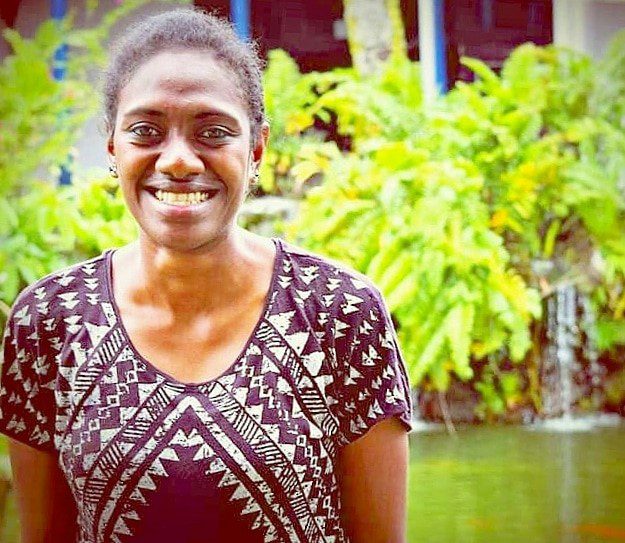Amnesty International has profiled five human rights defenders from across the Pacific to highlight their critical work and the immense challenges they face every day. These profiles were being launched today in Suva, Fiji.
This discussion must lead to quick and concrete action: it’s time for Pacific governments to realise that human rights defenders are striving to improve their countries, not undermine them.
Roshika Deo, Pacific Researcher at Amnesty International
“By researching and promoting these powerful stories, we want to create space for an urgent discussion of what it means to be a human rights defender in the Pacific,” said Roshika Deo, Amnesty International’s Pacific Researcher. “And this discussion must lead to quick and concrete action: it’s time for Pacific governments to realise that human rights defenders are striving to improve their countries, not undermine them. Governments must demonstrate their commitment to protect and promote the rights of everyone who defends human rights.”
The five human rights defenders profiled are Camari Serau, a LGBTI and women’s rights activist from Fiji; Anaweta Vukaloto an environmental activist from Fiji; Cressida Kuala a women’s rights and environmental activist from Papua New Guinea; Emmanuel Peni a LGBTI and environmental activist from Papua New Guinea; and Cruella Oshtara a LGBTI activist from Tonga.
Across the Pacific region, human rights defenders regularly experience harassment and violence, threats from their community and their advocacy targets, and arrests by the authorities. In some countries, laws limit the work of human rights defenders by restricting their right to freedom of expression and peaceful assembly, states abuse legal provisions to prosecute them. In most of the region there are no laws that explicitly protect and promote the rights of human rights defenders. The lack of systematic data and documentation on the status of human rights defenders hinders advocacy on improving the status of human rights defenders – and raising the bar on human rights – in the region.
In Papua New Guinea, human rights defenders working on environmental rights and on women’s rights are particularly at risk. Women’s human rights defenders say they experience gender related violence directly linked to their human rights advocacy. In Fiji, violations of the right to freedom of expression, peaceful assembly and association are common among human rights defenders because of restrictive laws in this space. Tonga, on the other hand has a strong LGBTQI movement, however ‘leitis’ (trans women) experience stigma, hate speech and bullying.
As part of this launch, Amnesty International calls on the Pacific Islands Forum Secretariat to recognize the precarious status of human rights defenders in the region and to take steps to incorporate the protection and promotion of Human Rights Defenders in their meeting agendas.
“The governments of Fiji, Papua New Guinea and Tonga must also take immediate measures to adopt the principles in the UN Declaration on Human Rights Defenders, and guarantee the protection and promotion of rights of human rights defenders in accordance with the Declaration and other international human rights standards,” said Roshika Deo.
-
Portrait of an activist: Camari Serau
-
Portrait of an activist: Emmanuel Peni
-
Portrait of an activist: Cruella Oshtara
-
Portrait of an activist: Cressida Kuala


